Introduction
Impact of Local rituals on the new Gereration Ethics or Local rituals, deeply embedded in the cultural fabric of societies, play a pivotal role in shaping the ethical framework of individuals from a young age. These rituals, encompassing religious, social, and cultural practices, transmit values and norms that significantly influence the moral development of the new generation. This article delves into how local rituals impact the ethics of the new generation, exploring their roles in instilling moral values, fostering community bonds, and shaping individual identities.
The Role of Local Rituals in Moral Development
Local rituals serve as a conduit for passing down ethical principles and moral values from one generation to the next. Through participation in these rituals, children and adolescents learn about the cultural norms and ethical standards that define their community. For instance, religious ceremonies often emphasize values such as honesty, compassion, and respect for others, reinforcing these principles through repeated practice and communal reinforcement.
In many cultures, rituals mark significant life events such as birth, coming of age, marriage, and death. These ceremonies not only celebrate important milestones but also serve as educational experiences, imparting lessons about the responsibilities and ethical behaviors expected at different stages of life. For example, coming-of-age rituals often emphasize the importance of responsibility, integrity, and community involvement, guiding young individuals as they transition into adulthood.
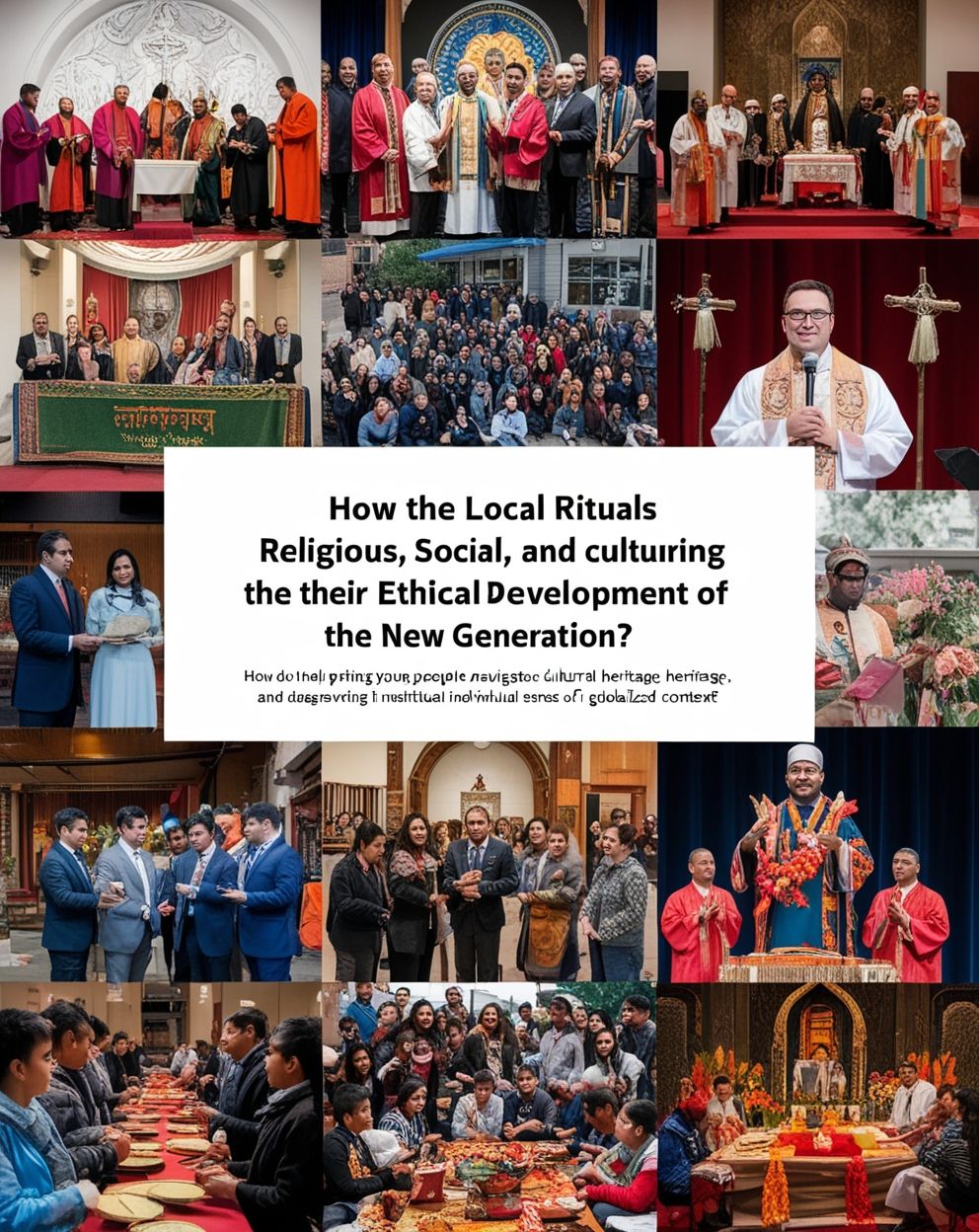
Fostering Community Bonds and Collective Ethics
Impact of Local rituals on the new Gereration Ethics or Local rituals, Local rituals play a crucial role in fostering a sense of community and collective ethics. By participating in shared rituals, individuals develop a sense of belonging and solidarity with their community. This collective identity reinforces a common ethical framework, promoting social cohesion and mutual support.
Community rituals, such as festivals, communal feasts, and religious observances, provide opportunities for individuals to come together and engage in collective activities that reinforce shared values. These events often involve communal efforts, such as preparing food, organizing events, or participating in group prayers, which emphasize the importance of cooperation, generosity, and mutual respect.
The shared experiences of participating in local rituals create a sense of continuity and connection with the past, present, and future members of the community. This temporal connection strengthens the transmission of ethical values, ensuring that the moral principles upheld by the community endure across generations.
Shaping Individual Identities and Ethical Perspectives
Local rituals also play a significant role in shaping individual identities and ethical perspectives. Through engagement with these rituals, individuals internalize the values and norms of their culture, which become integral to their personal identity and moral compass.
Rituals often involve storytelling, music, dance, and other forms of cultural expression that convey ethical lessons and historical narratives. These cultural elements help individuals understand their place within the broader social and moral framework, providing a sense of purpose and direction. For example, traditional stories and folklore often contain moral lessons that teach children about the consequences of good and bad behavior, helping them develop a nuanced understanding of ethical principles.
The performative aspect of rituals also reinforces ethical behavior by providing visible role models. Elders, religious leaders, and respected community members often lead rituals, demonstrating ethical behavior and setting examples for younger generations to follow. This direct observation and imitation play a crucial role in the moral development of individuals, as they learn to emulate the behaviors and attitudes of their role models.
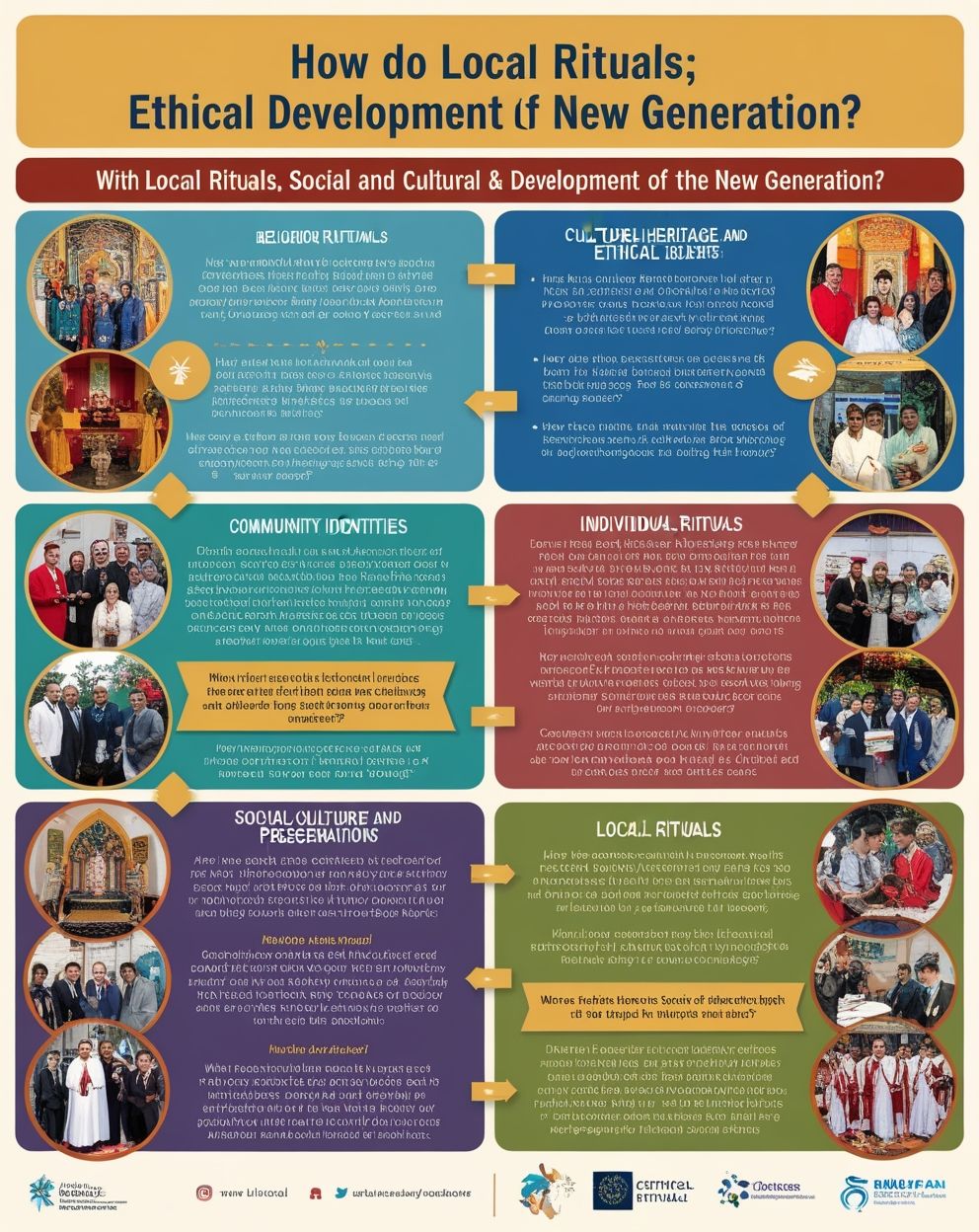
Preserving Cultural Heritage and Ethical Continuity
Local rituals are essential for preserving cultural heritage and ensuring the continuity of ethical traditions. In many societies, rituals are a means of safeguarding cultural knowledge and practices that might otherwise be lost in the face of modernization and globalization.
By maintaining and practicing local rituals, communities keep their unique cultural identities alive, which in turn reinforces the ethical values embedded in these traditions. This preservation of cultural heritage provides a stable foundation for the ethical development of future generations, ensuring that they remain connected to their roots and cultural history.
For example, indigenous rituals and ceremonies often encapsulate a deep respect for nature and the environment, promoting values of sustainability and stewardship. As the new generation participates in these rituals, they learn to value and protect their natural surroundings, integrating these ethical principles into their worldview.
Challenges and Adaptations in Modern Contexts
While local rituals have a profound impact on the ethics of the new generation, they also face challenges in modern contexts. Globalization, urbanization, and technological advancements have brought about significant changes in social structures and cultural practices, sometimes leading to the erosion of traditional rituals.
However, many communities are adapting their rituals to contemporary contexts, finding innovative ways to preserve their cultural heritage and ethical values. For instance, digital platforms and social media are being used to document and share traditional rituals, making them accessible to a wider audience and ensuring their continued relevance.
Educational initiatives and cultural programs also play a vital role in revitalizing local rituals and promoting their importance in ethical development. Schools, community centers, and cultural organizations are increasingly incorporating traditional rituals into their activities, providing opportunities for the new generation to engage with their cultural heritage in meaningful ways.
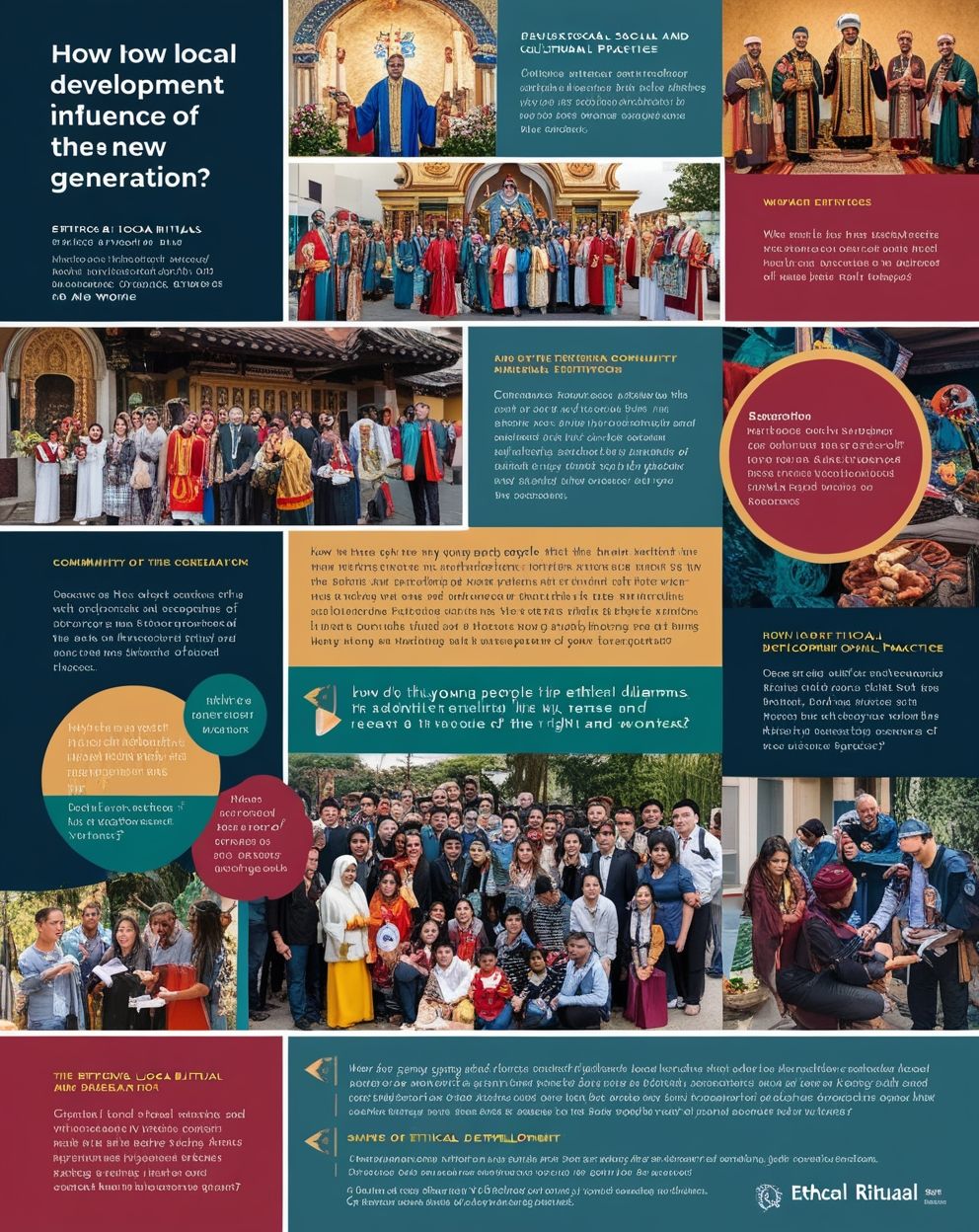
The Interplay Between Local Rituals and Global Ethics
In the modern world, the interplay between local rituals and global ethics is becoming increasingly important. As individuals are exposed to diverse cultures and ethical frameworks, local rituals can serve as a grounding force, helping them navigate the complexities of a globalized society.
By fostering a strong sense of cultural identity and ethical grounding, local rituals equip individuals with the tools to engage with and contribute to global ethical discourses. The values and principles learned through local rituals can serve as a foundation for understanding and respecting the ethical perspectives of other cultures, promoting cross-cultural dialogue and mutual understanding.
For example, rituals that emphasize compassion, respect, and social responsibility can resonate with global ethical initiatives such as human rights, environmental sustainability, and social justice. By bridging local and global ethics, individuals can contribute to a more inclusive and ethical global society.
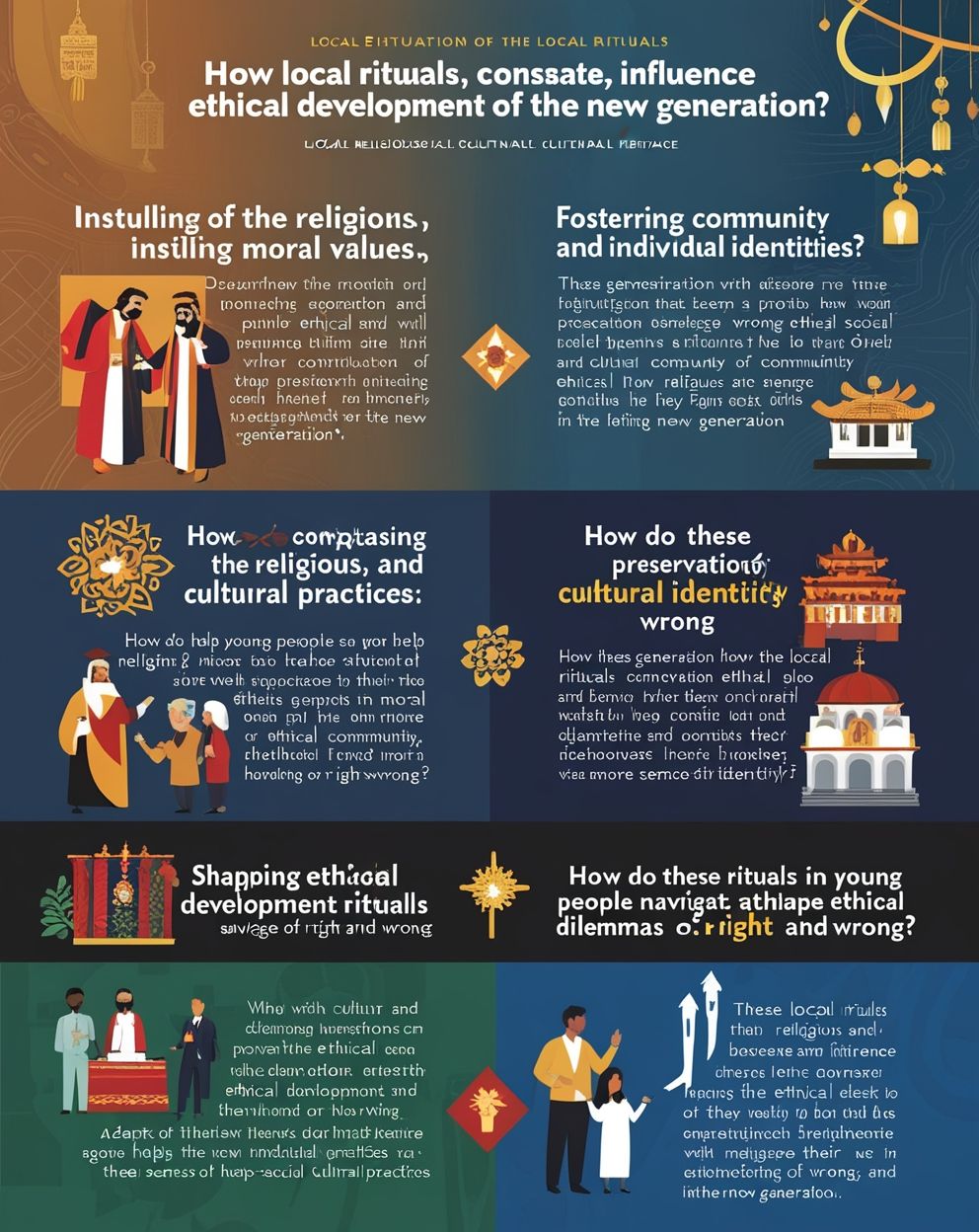
Conclusion
Local rituals have a profound impact on the ethics of the new generation, playing a crucial role in moral development, fostering community bonds, shaping individual identities, and preserving cultural heritage. Despite the challenges posed by modernization and globalization, local rituals continue to serve as a vital source of ethical guidance and cultural continuity. By adapting to contemporary contexts and engaging with global ethical discourses, local rituals can continue to influence the ethical development of the new generation, ensuring that the values and principles that define their cultural heritage endure and evolve in a rapidly changing world.
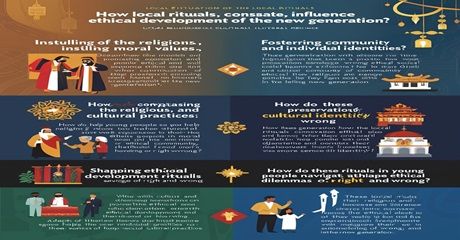
yaxebo
ab3ifn
Only wanna tell that this is handy, Thanks for taking your time to write this.
3qiig0
I was examining some of your articles on this site and I conceive this website is rattling instructive! Keep on putting up.
hello!,I like your writing very much! share we communicate more about your post on AOL? I need a specialist on this area to solve my problem. May be that’s you! Looking forward to see you.
Great paintings! That is the type of information that should be shared around the web. Disgrace on Google for now not positioning this publish higher! Come on over and consult with my site . Thank you =)
I was wondering if you ever thought of changing the page layout of your blog? Its very well written; I love what youve got to say. But maybe you could a little more in the way of content so people could connect with it better. Youve got an awful lot of text for only having 1 or 2 images. Maybe you could space it out better?
Hey there! Do you know if they make any plugins to safeguard against hackers? I’m kinda paranoid about losing everything I’ve worked hard on. Any tips?
Usually I do not read post on blogs, but I would like to say that this write-up very forced me to try and do it! Your writing style has been amazed me. Thanks, quite nice article.
Please let me know if you’re looking for a article author for your weblog. You have some really great articles and I believe I would be a good asset. If you ever want to take some of the load off, I’d absolutely love to write some content for your blog in exchange for a link back to mine. Please send me an e-mail if interested. Thanks!
This web site is really a walk-through for all of the info you wanted about this and didn’t know who to ask. Glimpse here, and you’ll definitely discover it.
I like your writing style truly enjoying this web site.
I am continually searching online for ideas that can benefit me. Thanks!
It’s a pity you don’t have a donate button! I’d definitely donate to this superb blog! I suppose for now i’ll settle for book-marking and adding your RSS feed to my Google account. I look forward to fresh updates and will share this site with my Facebook group. Talk soon!
I wanted to thank you for this great read!! I definitely enjoying every little bit of it I have you bookmarked to check out new stuff you post…